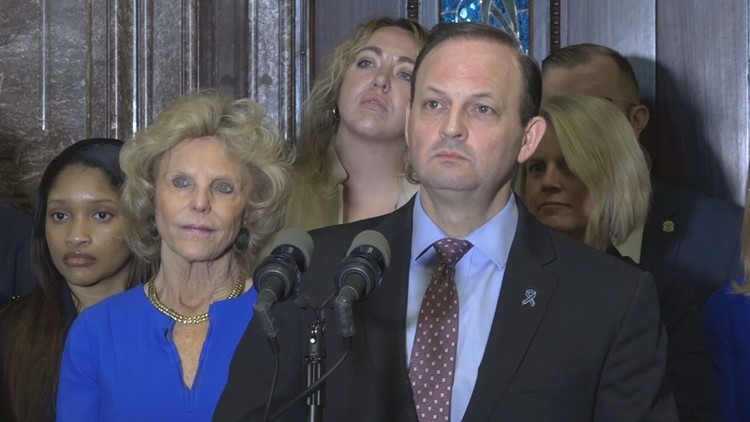

The order changing birthright citizenship was one of President Trump’s first actions when he came back in office.
COLUMBIA, S.C. — South Carolina Attorney General Alan Wilson says he backs President Donald Trump’s controversial executive order that would redefine birthright citizenship.
President Trump issued the order on the first day of his presidency. It calls for the U.S. to deny citizenship after February 19 to those whose parents are in the country illegally. The President believes its necessary to get illegal immigration under control by disincentivizing entering the country.
However, the order drew legal challenges, and just days later a federal judge blocked the order, calling it “blatantly unconstitutional.”
Parties on both sides of the lawsuit are submitting arguments in support or against the order. The judge who blocked the order is set to have a hearing on February 6 to decide whether to block it long term as the case continues.
Both sides in the debate point to the the first sentence of the Fourteenth Amendment, which was passed in 1866, which states, “all persons born or naturalized in the United States, and subject to the jurisdiction thereof, are citizens of the United States and of the State where they reside.”
Wilson, along with 17 other state attorneys general, is backing President Trump’s push. Wilson said the 14th Amendment was meant to ensure that newly freed slaves and their children were citizens. He argues allowing children of immigrants who come illegally upends the true intent of the amendment.
Others, however, argue the interpretation that children of immigrants, regardless of status, are citizens is backed up over 100 years of legal precedent.
Wilson said citizenship should be restricted to U.S. citizens or lawful permanent residents. He believes this aligns with the Constitution’s two-part test for granting citizenship: whether a person is born in the U.S. and whether they are subject to its jurisdiction.
Wilson also believes the country is being financially burdened by covering births to noncitizens.
The other states joining South Carolina include Iowa, Alabama, Arkansas, Florida, Idaho, Indiana, Kansas, Louisiana, Mississippi, Missouri, Montana, Nebraska, North Dakota, Oklahoma, South Dakota, Utah, and Wyoming.


